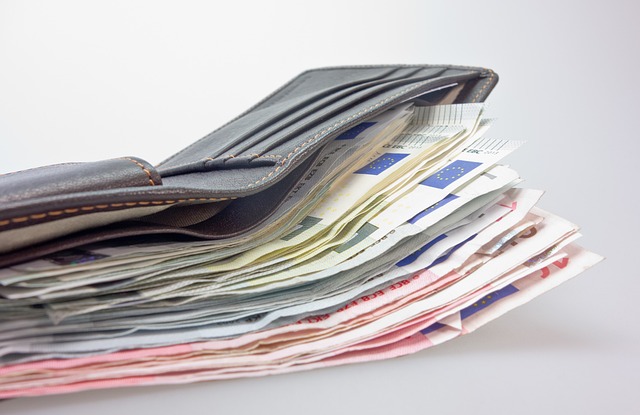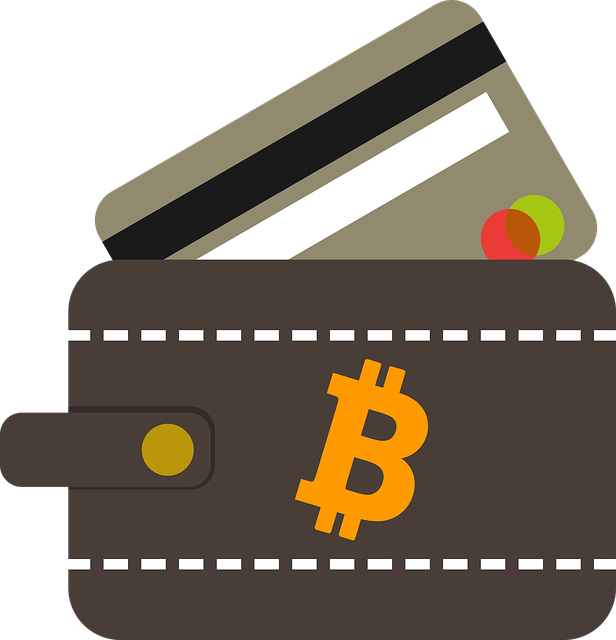Unlocking the Secrets: How to Choose the Best Crypto Wallet for Your Investments
Author: Jameson Richman Expert
Published On: 2025-01-24
Prepared by Jameson Richman and our team of experts with over a decade of experience in cryptocurrency and digital asset analysis. Learn more about us.
In the ever-evolving landscape of cryptocurrency, securing your digital assets is more crucial than ever. Whether you're a seasoned trader or just starting your crypto journey, the importance of choosing the right wallet cannot be overstated. From volatile market shifts to the inevitable threat of hacking, having a reliable crypto wallet is your first line of defense. In this article, we will explore the different types of crypto wallets, their pros and cons, and guide you through the selection process to ensure your investments are safe. Let’s dive in!

Understanding Crypto Wallets
At its core, a crypto wallet is a tool that enables users to store, send, and receive digital currencies like Bitcoin, Ethereum, and many others. Unlike traditional wallets that hold physical cash, crypto wallets store your private and public keys – essential components for managing your cryptocurrency assets. It’s essential to understand that crypto wallets do not store the actual coins but rather allow you to interact with the blockchain where your coins are recorded.
Types of Crypto Wallets
Before getting into the selection process, it's vital to understand the two main categories of crypto wallets: hot wallets and cold wallets.
Hot Wallets
Hot wallets are linked to the internet, making them convenient for trading and transactions. They come in several forms, including:
- Web Wallets: Accessible from any device with an internet connection, these wallets are often provided by exchanges.
- Mobile Wallets: Smartphone apps that allow you to make transactions on the go.
- Desktop Wallets: Software installed on your computer, providing full control over your private keys.
While hot wallets offer ease of access, they carry a higher risk of hacking and theft. Therefore, it's crucial to use reputable services and enable additional security measures, such as two-factor authentication.
Cold Wallets
Cold wallets, on the other hand, are offline solutions that significantly reduce the risk of being hacked. They provide robust security and are ideal for long-term storage of crypto assets. They include:
- Hardware Wallets: Physical devices designed specifically for storing cryptocurrencies, like Ledger or Trezor.
- Paper Wallets: Physical printouts of your public and private keys, providing an air-gapped solution.
While cold wallets prioritize security, they require additional steps to access your funds, making them less convenient for frequent transactions.
Factors to Consider When Choosing a Crypto Wallet
Now that you understand the different types of wallets, let's discuss the key factors you should consider when selecting one that best fits your needs.
Security Features
First and foremost, assess the security features of the wallet. Look for wallets that offer:
- Two-Factor Authentication: Adds an extra layer of security by requiring a second form of identification.
- Multi-Signature Support: Requires multiple private keys to authorize a transaction, reducing the risk of theft.
- Backup and Recovery Options: Ensure that you can recover your wallet in case of loss or theft.
User Experience
The wallet should be user-friendly. Whether you are a beginner or a veteran, clarity in the interface and ease of use are crucial. Look for wallets that offer comprehensive help sections, tutorials, or customer support.
Supported Coins
Not all wallets support the same cryptocurrencies. If you plan on investing in various coins, ensure the wallet you choose can accommodate them. Some hot wallets can support numerous tokens while cold wallets may focus primarily on the major coins.
Compatibility & Integration
It's important to choose a wallet that integrates seamlessly with crypto exchanges and other services. This connectivity allows you to transfer funds quickly and efficiently. For example, wallets that work with exchanges like Binance make trading easier. If you're interested in signing up for Binance, you can register [here](https://accounts.binance.info/en/register?ref=12093552).
Community Reputation
Before finalizing your decision, it's wise to research the community’s experience with the wallet. Read reviews and testimonials to gauge the wallet's reliability and security track record.
Popular Crypto Wallets to Consider
Now that we’ve covered the basics, let's look at some popular wallets that have garnered attention for their features and security measures.
1. Exodus Wallet
Exodus is a user-friendly desktop and mobile wallet that supports over 130 cryptocurrencies. Its sleek interface makes it a favorite among beginners. Additionally, it offers built-in exchange capabilities, which allow users to swap between supported currencies easily. However, users should note that Exodus does not provide true custody of private keys, as they are stored on the device.
2. Ledger Nano X
The Ledger Nano X is a hardware wallet known for its robust security features. It supports over 1,500 coins and tokens, making it an appealing choice for serious investors. Its Bluetooth capability allows users to connect it to mobile devices for ease of access.
3. Trezor Model T
An industry pioneer, Trezor Model T enhances security with features like a touchscreen interface, multi-signature support, and recovery seed backup. It has broad support for multiple cryptocurrencies and integrates well with various third-party wallets.
4. Trust Wallet
Trust Wallet is a mobile wallet that supports many different tokens and decentralized applications. It is the official wallet for Binance, which adds to its credibility. The wallet gives users complete control of their private keys and is suitable for those interested in DeFi applications.

How to Secure Your Crypto Wallet
After selecting a wallet, maintaining its security is your responsibility. Here are essential practices for securing your wallet:
- Enable Two-Factor Authentication: Always enable 2FA where available.
- Keep Software Updated: Regular updates ensure you have the latest security patches.
- Use Strong Passwords: Create unique, complex passwords and change them regularly.
- Beware of Phishing Scams: Always check URLs and ensure you are on the correct site before entering any information.
- Backup Your Wallet: Regular backups protect you from unforeseen circumstances.
Conclusion
Choosing the right crypto wallet is a paramount decision in safeguarding your investments. By understanding the types of wallets, weighing your options, and considering essential factors like security, user experience, and compatibility, you can make an informed choice that aligns with your trading strategy. The crypto space is exciting and fraught with risks, but with the right tools and knowledge, you can navigate it successfully.
Secure your crypto journey today, and consider starting your trading adventure on Binance, one of the world’s leading crypto exchanges. Register [here](https://accounts.binance.info/en/register?ref=12093552) to access a world of opportunities in cryptocurrency trading!